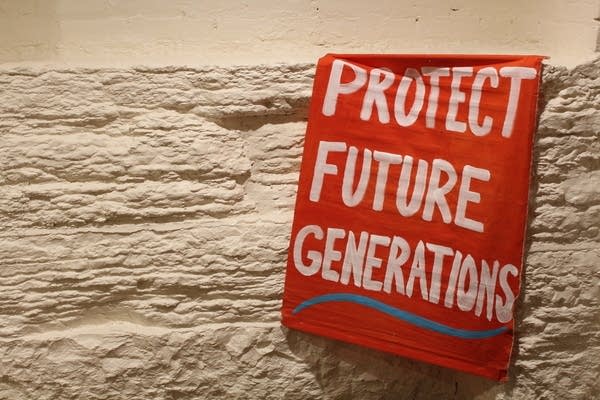Youth, lawmakers call for Minnesota Green New Deal

Go Deeper.
Create an account or log in to save stories.
Like this?
Thanks for liking this story! We have added it to a list of your favorite stories.
Updated: 10:57 a.m. | Posted: 5:45 a.m.
The Minnesota House saw introduction of state-level Green New Deal legislation Thursday, the first of its kind since the sweeping set of climate and economic proposals gained national prominence.
The legislation mirrors the plan's national incarnation, proposing to make Minnesota electricity entirely free of carbon emissions by 2030 and creating job-training programs for clean energy fields.
Turn Up Your Support
MPR News helps you turn down the noise and build shared understanding. Turn up your support for this public resource and keep trusted journalism accessible to all.
It also calls for a new climate change advisory council to help Minnesota transition to a clean-energy economy and a moratorium on any new fossil fuel infrastructure.
"We need aggressive action that does something now to save our future," said Sophia Faacks, an 18-year-old senior at Minneapolis South High School. "Minnesota is just one of the steps. If we can't get a national resolution, we need to start doing it state by state."
The federal Green New Deal failed after Senate Republicans forced it to a vote last month. It's unclear whether there's any momentum to carry the state-level proposal this session, either.
Rep. Frank Hornstein, DFL-Minneapolis, chief authored the House bill with heavy input from youth affiliated with a student-led climate group, MN Can't Wait.

"This is the first time I think I've ever witnessed high school students actually writing a bill. ... It's really their bill," Hornstein said, adding that he made suggestions as students wrote the proposal with nonpartisan legislative staff.
Sen. Scott Dibble, DFL-Minneapolis, is expected to chief author the Senate bill. As of Wednesday, proponents said they had 13 House members and four senators signed on as co-authors — all from the DFL.
The students pushing the state Green New Deal say they plan to continue seeking co-authors from both parties. They'll also hold town hall meetings across the state to share and generate support for their proposal.
Hornstein said he thinks one of the bill's most important parts is that it states the reality of climate change: It's happening and it's accelerating. "Unfortunately I have many colleagues that still don't accept that," he said.
For the students pushing a state Green New Deal, denying climate change is a non-starter. Faacks said she wouldn't vote for a candidate who doesn't believe climate change is real.
"It's going to affect my future," she said, "and I need politicians who are going to take action on climate change to protect my future."
Dear reader,
Political debates with family or friends can get heated. But what if there was a way to handle them better?
You can learn how to have civil political conversations with our new e-book!
Download our free e-book, Talking Sense: Have Hard Political Conversations, Better, and learn how to talk without the tension.




